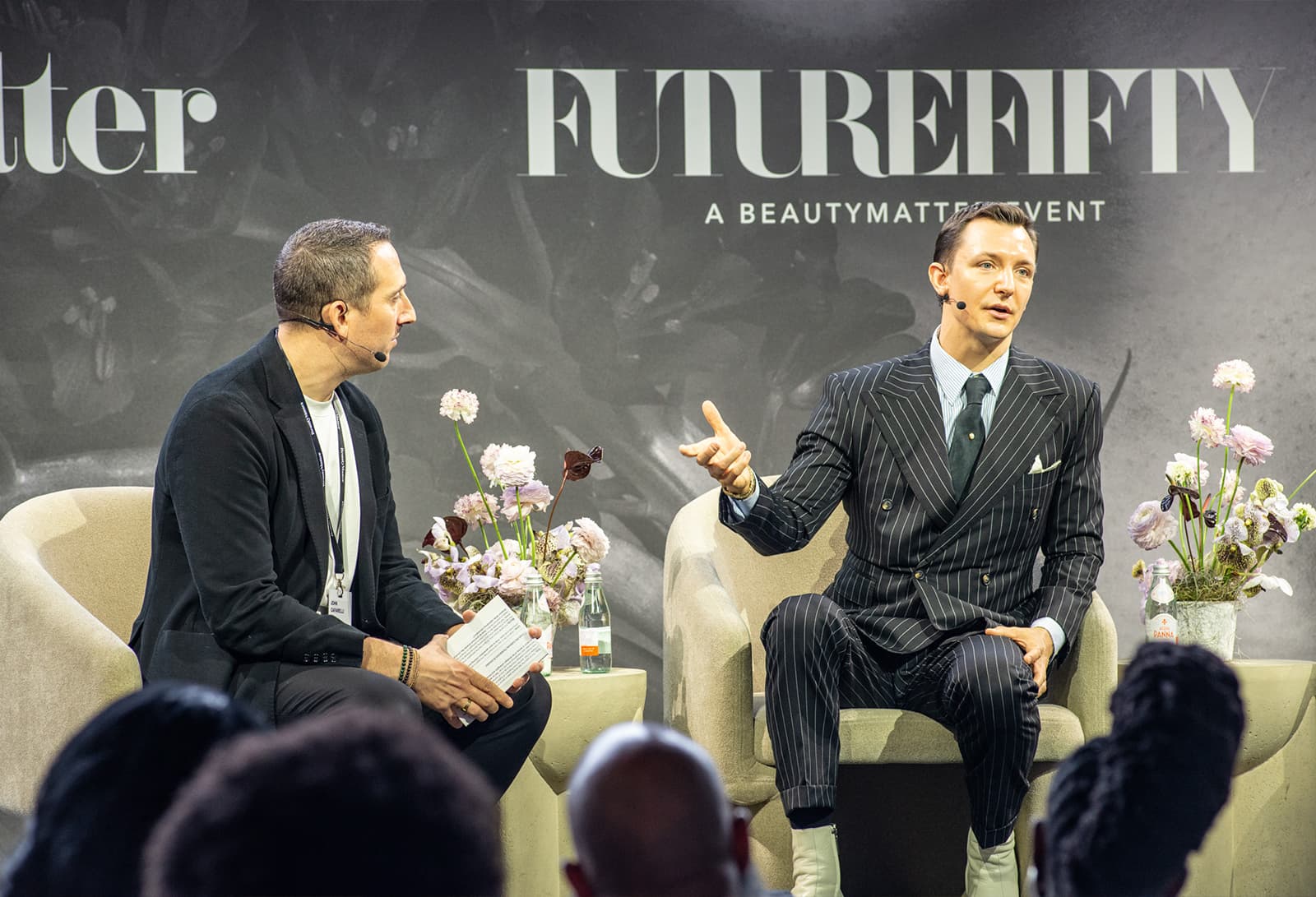“If you're a brand and you're not talking about Amazon, you need to be,” urged BeautyMatter co-founder and President John Cafarelli at the top of this panel discussion. Not long ago, brands were forced to decide whether or not to establish a presence on Amazon, he recalled. Recent data from Nielsen IQ reveals that e-commerce platforms now account for 41% of all beauty and personal care sales in the US, with Amazon holding a substantial share. This rapid e-commerce growth significantly surpasses that of traditional retail. Amazon's evolving role in the beauty and wellness marketplace demonstrates how the platform has transformed from a simple e-commerce site to a complex ecosystem that influences brand strategies across multiple channels.
Amazon’s Standing in the Beauty Ecosystem
According to Christopher Skinner, Chief Revenue Officer at Front Row, Amazon has captured seven points of share in the beauty market over the past four years, with 64% of that growth coming from existing Amazon customers, which signifies a growing trust between the Amazon customer and the beauty customer. This shift represents a fundamental change in how consumers discover, validate, and purchase beauty products.
The traditional view of marketing channels as separate entities has evolved into what Skinner described as a "stacked ecosystem." Consumers, especially younger generations like Gen Z and Gen Alpha, now seamlessly move between multiple platforms. They might discover a product on TikTok, validate it through Amazon reviews, and then make a purchase across various channels. This approach challenges brands to create a cohesive strategy that works across different touchpoints.
“Amazon, which used to be seen as a replenishment channel, is now really seeing customers in the consideration and validation phase all the way through to replenishment,” said Skinner.
Premium and medical-grade brands like NuFACE face unique challenges on Amazon. Monifa Browne, Senior Vice President of Digital and Brand at NuFACE, said it can be difficult to communicate the brand’s unique value proposition amid a sea of similar products that may not have the clinical studies and FDA approval that NuFACE does, but exists alongside the brand all the same.
“We need to be able to have those details easily outlined and digestible, so that way, we can make sure that if you're not purchasing within the platform, it at least becomes an extension of our education system that’s comparable to our DTC or our other retail partners,” said Browne.
Erin Dwyer, Operating Advisor at GroundForce Capital, believes that Amazon's strategic importance lies in its ability to control a brand's distribution ecosystem.
“We can't control where the consumer is going to shop, so we have to meet them where they are,” she said. “When a customer is on Amazon, they're faced with a lot of opportunity and a lot of options. Making sure that you have really clear brand representation that is consistent across all those touch points is super important.”
It's crucial to have a brand defense strategy on Amazon, Dwyer stressed, as neglecting it could have negative repercussions across the board.
“Where there is demand, there will be supply. Are you the one supplying it, or somebody else?” asked Dwyer.
Generational Differences and the Importance of Reviews
Amazon has managed to become a one-stop-shop for beauty consumers of all ages, but each generation interacts with Amazon differently. Boomers primarily use it for replenishment, while millennials value convenience and one-stop shopping. Gen Z connects social media with Amazon for discovery and validation, and Gen A is showing a trend of returning to in-store experiences. This generational diversity requires brands to develop nuanced, flexible marketing strategies.
The increasing connection between social media and e-commerce is most evident on Amazon, as Skinner notes that viral TikTok trends directly translate to increased Amazon searches for related brands and products. TikTok is a discovery platform, unlike Amazon. This may be why Amazon attempted to purchase TikTok, Dwyer notes.
Amazon reviews have become a critical trust-building mechanism, with the "imperfection" of reviews creating a sense of credibility. Approximately 90% of CPG searches on Amazon are unbranded, meaning consumers rely heavily on reviews for validation and decision-making.
“For brands at a higher price point battling against dupes, reviews are particularly important,” said Skinner. “This is where building brand equity and customer sentiment off-platform and then bringing it onto the platform through reviews can combat the issue of dupes.”


Building an Omnichannel Strategy
Although many brands understand the importance of maintaining a presence on Amazon, it's crucial for them to carefully manage their relationships with retailers like Sephora, which urges against brands being on the platform.
“Exclusivity is an important component to building brands,” said Dwyer. “There are really important relationships that are built with our retailers that can change the entire trajectory of a brand, but at the same time, you have to meet the consumer where they are, and only you can know that moment and that decision. Your retailers will thank you if you are protecting your gray market and keeping the integrity of the brand and ensuring that the products people are receiving from your brand are certified and legitimate.”
Dwyer finds that being in the early stages on Amazon is challenging if there isn't enough search volume and interest for your product. Without those, you are stuck competing for attention, which is very costly.
“You need to do your brand work to even be successful on that platform, and retail partners are a great place for that,” she said. “Once you're hitting critical mass, like $300,000 of revenue from a country that you're not even in, that's a sign that you need to start paying attention to a channel.”
As a premium brand, Browne urges brands in a similar position to make sure they are controlling the narrative and controlling the story.
“We're never going to be able to compete with the sampling and rewards program at Sephora. We're never going to be able to compete with a logistics monster that is Amazon, so we have to find a way to be able to navigate between that and really meet our customers where they are,” she said.
Looking to the future, the panelists predicted increased integration with social platforms (potentially TikTok), more personalized product pages, enhanced discovery mechanisms, and a continued focus on efficient conversion. For brands considering Amazon, the recommendation is to check Google search volume, analyze social media and earned media interest, understand category intent, and consider a defensive strategy even if not actively selling on the platform.
As the beauty and wellness market continues to evolve, Amazon will undoubtedly play an increasingly significant role in how brands connect with consumers, discover new products, and make purchasing decisions. The platform has transformed from a simple sales channel to a complex ecosystem that requires strategic thinking, adaptability, and a customer-centric approach.
The overarching message was clear: Amazon is no longer optional for beauty brands. Consumer behavior drives platform strategy, and authenticity and storytelling remain crucial. Brands must be agile and multiplatform, with a deep understanding of the customer journey.
Key Takeaways: